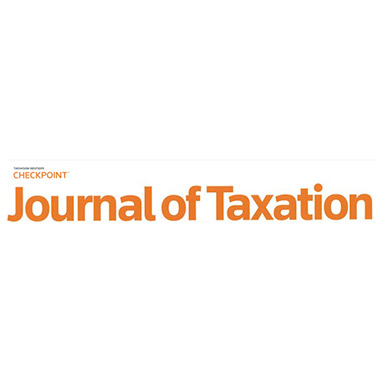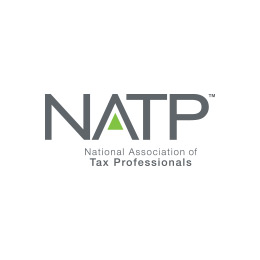Every U.S. citizen and resident are required to file a Foreign Bank and Financial Account Report, or “FBAR,” if they have a certain amount of assets kept in foreign accounts. If an individual willfully fails or provides misleading information on their FBAR, the IRS could levy serious penalties.
Not only will willfully failing to file an FBAR likely result in significant financial penalties, it can also lead to a criminal conviction and potential prison time. Fortunately, the IRS has a few amnesty programs available that can help you get back into compliance without facing a criminal prosecution. However, the IRS will typically claim a sizeable amount of the hidden assets in compensation for a violation.
If you need help with your FBAR and would like a free case evaluation with our FBAR tax attorneys, contact McCormick Tax Law at (215) 630-0861.
How Willfully Failing to File or Falsely Filing an FBAR Can Affect You
FBAR audits are becoming much more frequent, particularly since the United States and IRS have prioritized identifying and penalizing individuals who fail to report their foreign or offshore accounts. Thus, it is crucial to avoid committing FBAR fraud by reporting your qualifying accounts and avoiding any intentional misrepresentation of your financial interests. However, our experienced FBAR tax lawyers can help you determine if a violation occurred and how best to address it. The penalties for concealing this information can be life-altering.
If you have money or assets in an offshore bank or financial account and you are an American taxpayer, it is mandatory to disclose such accounts through the Foreign Bank and Financial Account Report (FBAR) if their combined value exceeds $10,000 at any time in the previous year. If you fail to report these accounts as required and the IRS discovers it, you could face severe penalties. A willful violation of this rule can result in a civil penalty equal to the greater of $100,000 or 50% of the aggregate balance of accounts reportable on an FBAR, as per 31 U.S.C. § 5321(a)(5)(C). In addition, willful failure to file FBAR will likely lead to criminal penalties if the matter is referred to the IRS criminal investigation unit.
Understanding the Willfulness Standard When Failing to File or Falsely Filing an FBAR
If the IRS determines that a taxpayer deliberately failed to fulfill their FBAR obligations, they may be subject to a willful FBAR penalty. Importantly, the government does not need to prove that the mistake was intentional to establish that a violation was willful. It can be considered willful if it is established that the individual showed reckless disregard for their FBAR filing obligations.
It is not required for an individual to have intentional knowledge of their FBAR violation in order for a willful penalty to be imposed. Individuals who hold foreign financial accounts and were willfully blind to their errors may still receive penalties. This is referred to as “willful blindness.” Simply stating that you were ignorant of your FBAR obligations does not protect you from prosecution if you intentionally avoided information that would prove your guilt. It is considered willful blindness when a taxpayer holds a subjective belief that a significant piece of information exists, yet they intentionally take steps to avoid gaining knowledge about it.
Intentionally avoiding information that would make one aware of their obligations is also a form of willful blindness. For example, if someone declines advice from their tax professional on FBAR filing, it could be seen as evidence of criminal activity. However, it can be hard to tell in some cases what was willful and what is an honest mistake, making it crucial to get legal help when being accused of a willful violation.
Calculating Penalties for Willful FBAR Violations
The penalties for a willful FBAR violation are no laughing matter as most will result in severe fines and prison time in more serious cases. If a taxpayer violates the FBAR requirements willfully, they will typically face penalties in the form of a $100,000 fine or 50% of the balance in their foreign account at the time of the violation, whichever is greater. If a taxpayer has repeatedly violated FBAR willfully over several years, penalties can be imposed for each year they are found to be in violation. Nonetheless, the IRS examiner has the power to reduce the penalty amount based on the circumstances of the case.
If a willful violation occurs, the penalty will be determined by calculating the total penalty amount for all years with willful FBAR violations. This calculation is based on the ratio between the highest aggregate balance for each year and the total of all highest aggregate balances for all years combined.
If you have foreign accounts with significant funds, failing to report them could lead to severe penalties. Moreover, it is possible for the IRS to initiate a criminal case against you. If found guilty of deliberately not filing FBAR, you may be subject to fines as high as $250,000 and imprisonment for up to 5 years in federal prison.
How to Get Back into Compliance for a Willful FBAR Violation
For a while, the IRS had a policy in place that provides protection to taxpayers who voluntarily confess to providing false or misleading information on their tax returns. By paying what they owe plus interest and fines, these taxpayers can avoid criminal liability. To further this effort, the Offshore Voluntary Disclosure Program (OVDP) was introduced to allow taxpayers who previously failed to report required FBAR information to self-disclose the information they should have reported. However, this amnesty program was discontinued in 2018.
You now have the option to disclose both foreign and domestic information through the voluntary disclosure program (VDP). Despite the benefits you would receive, however, including a high likelihood of avoiding criminal charges, the fines you will face could be substantial. In addition to owing taxes and interest on the past six years of tax deficiencies, you will also have to pay a civil fraud penalty of 75% on the highest tax deficiency year from the past six years. Furthermore, you will be charged an additional penalty of 50% of the highest aggregate balance of the account over the period of the disclosures, or $100,000, as mentioned previously.
However, it is important to note that once the IRS has begun an auditor investigation into your situation, it will be too late to enter into any of these voluntary disclosure programs. If you failed to file an FBAR or believe you made a legitimate mistake, it is critical to get ahead of the situation before your matter is referred to a criminal investigation.
Our FBAR Tax Attorneys Can Help
For a free case assessment with our FBAR tax attorneys, call McCormick Tax Law today at (215) 630-0861.










